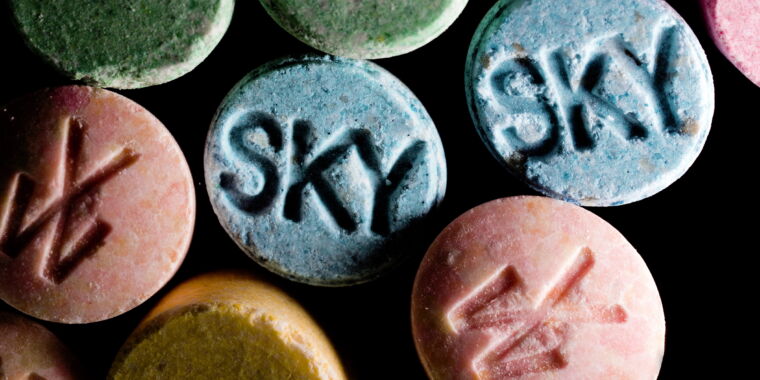Flawed, scandalous trials tank FDA expert support for MDMA therapy

🌈 Abstract
The article discusses the FDA's advisory committee's overwhelming vote against approving MDMA (ecstasy) as part of therapy for post-traumatic stress disorder (PTSD). The committee identified several issues with the clinical trial data, including missing data, bias, and potential misconduct, which led them to question the validity of the positive results.
🙋 Q&A
[01] FDA Advisory Committee Vote
1. What was the outcome of the FDA advisory committee's vote on approving MDMA for PTSD therapy?
- The advisers voted 9 "no" to 2 "yes" against MDMA being effective for PTSD treatment.
- They also voted 10 "no" to 1 "yes" against the benefits of MDMA with the proposed risk evaluation and mitigation strategy (REMS) outweighing its risks for PTSD treatment.
2. What were the key issues the committee identified with the clinical trial data?
- The double-blind trials were essentially unblinded, as both therapists and participants knew whether MDMA was given, introducing significant bias.
- About 40% of trial participants had prior MDMA exposure, which could have introduced selection bias.
- The company (Lykos) did not collect important data, such as the biological effects of MDMA, cardiovascular effects, and positive effects like "euphoria" that could indicate abuse potential.
- There were concerns about the psychotherapy technique used, which was not evidence-based and had potential for abuse and exploitation.
- Possible misconduct, such as discouraging participants from reporting negative responses and encouraging positive responses, was also raised.
3. How will the FDA proceed after the advisory committee's recommendation?
- The FDA will make its own decision on whether to approve MDMA for PTSD therapy, although it often follows the advice of its advisory committees.
- The FDA is also conducting its own investigation into the accusations of possible data manipulation during the trials and will not make a determination on MDMA until that investigation is complete.
[02] Implications and Broader Context
1. What are the potential implications of the advisory committee's recommendation?
- The overwhelming vote against approving MDMA for PTSD therapy suggests significant concerns about the validity and reliability of the clinical trial data.
- The issues identified, such as bias, missing data, and potential misconduct, raise doubts about the overall efficacy and safety of MDMA for PTSD treatment.
2. How does this case fit into the broader context of drug development and approval?
- The article highlights the importance of rigorous clinical trials and the need for transparent and reliable data to support the approval of new therapies.
- It also underscores the role of FDA advisory committees in providing independent expert evaluation of drug applications, which can significantly influence the final regulatory decision.